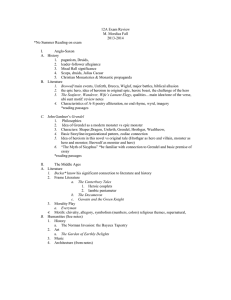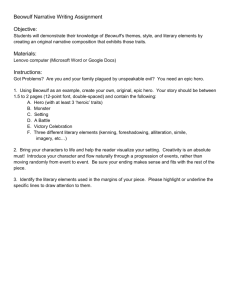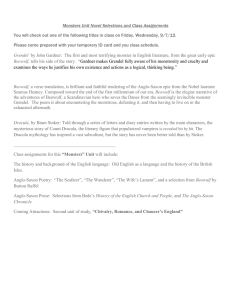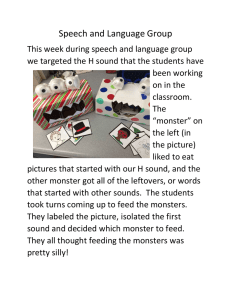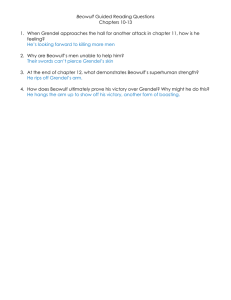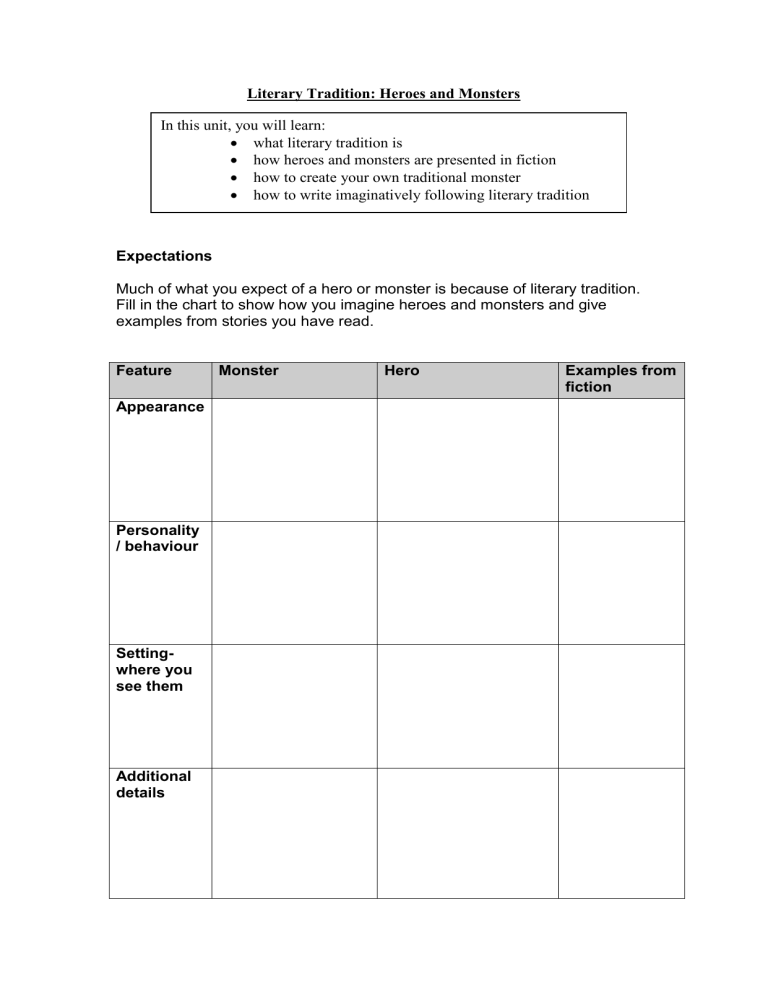
Literary Tradition: Heroes and Monsters In this unit, you will learn: what literary tradition is how heroes and monsters are presented in fiction how to create your own traditional monster how to write imaginatively following literary tradition Expectations Much of what you expect of a hero or monster is because of literary tradition. Fill in the chart to show how you imagine heroes and monsters and give examples from stories you have read. Feature Appearance Personality / behaviour Settingwhere you see them Additional details Monster Hero Examples from fiction Skills in English (p13) Beowulf and Grendel: Traditional Hero and Traditional Monster? Fill in the chart to show how Beowulf and Grendel are traditional. Use your own words and quotations from the text. Feature Monster Hero Appearance Personality / behaviour Settingwhere you see them Additional details Extension 1. Do you think Grendel and Beowulf are traditional characters? Explain your ideas and support with quotations from the story. 2. Look at the language used to describe Grendel and Beowulf. Pick out a few quotations and explain the effect of the language used. The Sea Witch: Creating a traditional monster At the end of this section Grendel is killed but this is not the end of the story. Beowulf’s mother, The Sea Witch, comes looking for revenge. Using what you have learned about traditional monsters and taking clues from her name, draw The Sea Witch. Writing Task: The Sea Witch Attacks. Write the next extract of the story explaining what happens when the Sea Witch attacks. You should: plan your story keep the plot simple create powerful descriptions follow literary tradition
